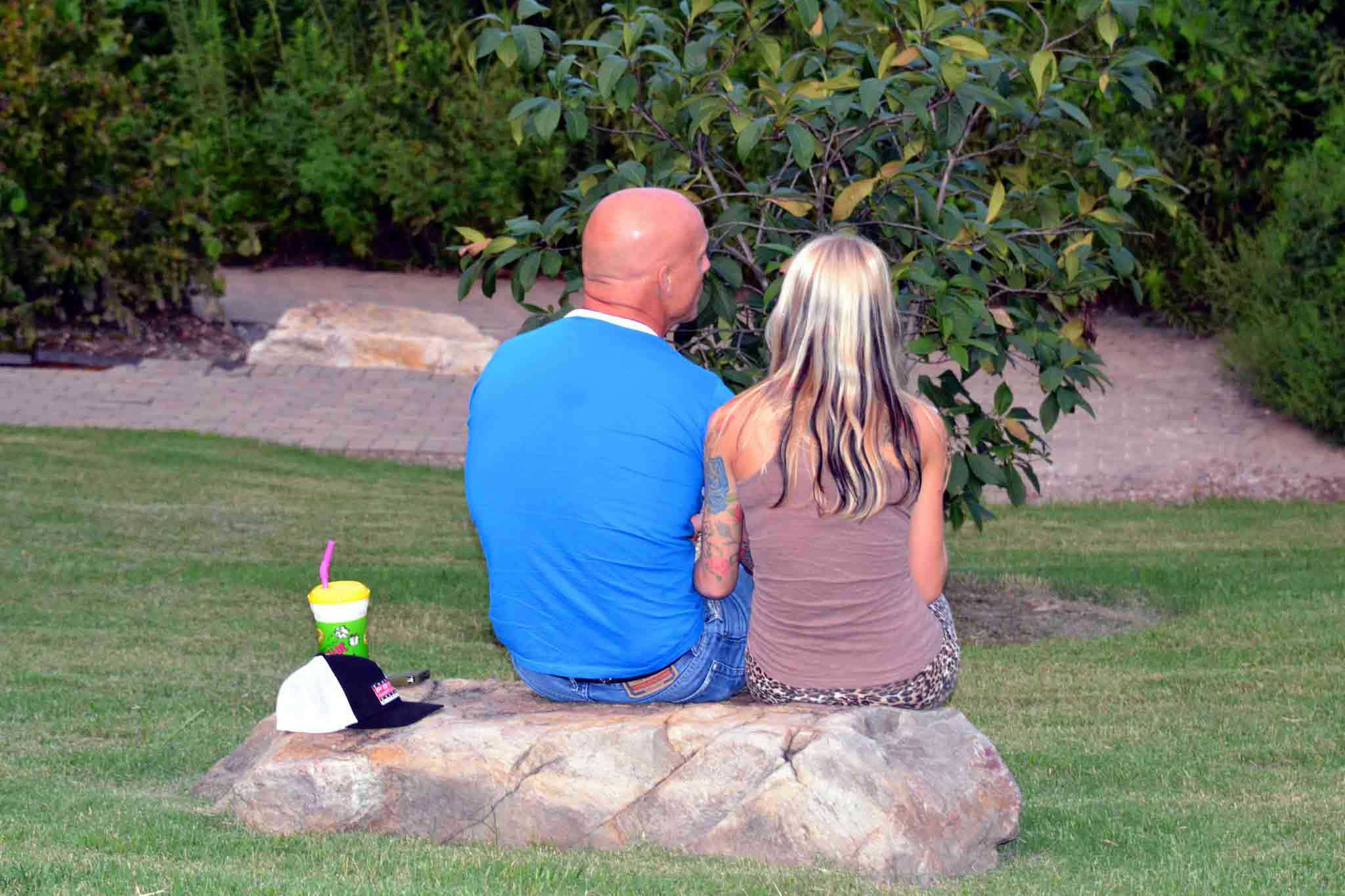 This article is the second in a two-part series on the practical steps you can take to find freedom from sexual addiction. If you are reading this, there is a good chance that you, or someone you love, is struggling with unwanted sexual behavior. It is also likely that this has been a problem for some time. It takes a great deal of courage to admit that you are struggling with sexual issues, and even more courage to reach out for help. Sexual addiction brings immense shame, guilt and remorse – especially for those of us who are married – and can even make our relationship with Christ feel distant at times.
This article is the second in a two-part series on the practical steps you can take to find freedom from sexual addiction. If you are reading this, there is a good chance that you, or someone you love, is struggling with unwanted sexual behavior. It is also likely that this has been a problem for some time. It takes a great deal of courage to admit that you are struggling with sexual issues, and even more courage to reach out for help. Sexual addiction brings immense shame, guilt and remorse – especially for those of us who are married – and can even make our relationship with Christ feel distant at times.
In my previous article , I argued that freedom from sexual addiction is indeed possible. However, you need an opportunity to slow down and to shift your attention from your head to your heart. This will enable you to begin to make the changes that can bring you to the freedom you desire. In that article, I introduced five surefire steps that you can take to break free from sexual addiction. I discussed the need to shift from control to surrender and to acknowledge how your behavior impacts others. In this article, I continue to discuss three further steps that can lead you to freedom from unwanted sexual behavior. While these steps are not a magic cure, they can provide an effective way out of the compulsive cycle of addictive behavior that makes you feel stuck.
Tap into the Power of Community and Accountability
 Having acknowledged the destructiveness of your own behavior, you will be tempted to try and fix things on your own for fear of the shame involved in sharing your struggles with others. But in fact, the most difficult and dangerous part of struggling with unwanted sexual behavior is precisely being isolated and alone. The reality is that overcoming sexual temptation and lust is very difficult when you are trapped by your feelings of guilt and shame. Being connected with other people is a very powerful remedy to shame. You need to get outside yourself and acknowledge that you cannot overcome this problem on your own. Community provides a strength that you simply don’t have on your own. While sharing your story with others may feel very frightening, it is a necessary step that you need to take. One of the most powerful things we can do is to share our feelings and our shortcomings with another human being. We have to be willing to trust others; and we have to be willing to trust that God works through others to help us overcome our problems.
Having acknowledged the destructiveness of your own behavior, you will be tempted to try and fix things on your own for fear of the shame involved in sharing your struggles with others. But in fact, the most difficult and dangerous part of struggling with unwanted sexual behavior is precisely being isolated and alone. The reality is that overcoming sexual temptation and lust is very difficult when you are trapped by your feelings of guilt and shame. Being connected with other people is a very powerful remedy to shame. You need to get outside yourself and acknowledge that you cannot overcome this problem on your own. Community provides a strength that you simply don’t have on your own. While sharing your story with others may feel very frightening, it is a necessary step that you need to take. One of the most powerful things we can do is to share our feelings and our shortcomings with another human being. We have to be willing to trust others; and we have to be willing to trust that God works through others to help us overcome our problems.
One simple and affordable way of creating some accountability for yourself is to install accountability software such as Covenant Eyes on every device that you use to access the internet. This enables you to select a trusted individual and give them access to your weekly internet activity. While accountability software is not a magic bullet, it can be a good deterrent against unwanted sexual behavior online. And it also provides you with an opportunity to bring your behavior out of the shadows and into the light as you share a part of yourself with another person.
Establish Boundaries
We know that there are particular feelings, situations, people, places and things that make us vulnerable and more likely to engage in unwanted sexual behavior. Such things “trigger” our destructive behavior cycles. The key to sexual purity is to identify your vulnerabilities in each of these areas and to create a plan that enables you to think clearly and make the best decisions you can. One of my clients recently referred to his boundaries as “pre-decisions” and that is basically what they are. By identifying ahead of time what you are going to do in situations that are potentially tempting, you are able to make decisions now rather than in “the heat of the moment.” When the dangerous, triggering moments occur, you simply have to stick to your boundaries. It is a good idea to tell someone else about your boundaries and to give them permission to ask you about how you have been doing.
Find a Good Counselor and/or a Recovery Group
 As I mentioned before, one of the most difficult parts of the journey to healing and freedom is admitting to another person that you have a problem. This seems to be especially difficult for Christian men because of the immense shame attached to unwanted sexual behavior. Admitting that you are struggling with sexual behavior requires strength of commitment and a willingness to do whatever it takes to get better. But the unmistakable reality is that you cannot do this on your own. God works through other men, and through support groups and professionals, to help you heal the hurt and pain of your behavior. You can only achieve enduring freedom and a new way of life when you are willing to get outside of yourself. But this will not happen without an intentional effort and you need to take ownership of your own healing and recovery. Try to find an accountability partner or two, or find a recovery group or a good counselor who is specialized in this area. It takes a major step of courage to find a group, make a call or seek professional help; it’s not easy but nothing worth having is ever easy.
As I mentioned before, one of the most difficult parts of the journey to healing and freedom is admitting to another person that you have a problem. This seems to be especially difficult for Christian men because of the immense shame attached to unwanted sexual behavior. Admitting that you are struggling with sexual behavior requires strength of commitment and a willingness to do whatever it takes to get better. But the unmistakable reality is that you cannot do this on your own. God works through other men, and through support groups and professionals, to help you heal the hurt and pain of your behavior. You can only achieve enduring freedom and a new way of life when you are willing to get outside of yourself. But this will not happen without an intentional effort and you need to take ownership of your own healing and recovery. Try to find an accountability partner or two, or find a recovery group or a good counselor who is specialized in this area. It takes a major step of courage to find a group, make a call or seek professional help; it’s not easy but nothing worth having is ever easy.
Christian Counseling Can Help You Break Free of Your Sexual Addiction
This article has outlined steps that you can take to break free of your sexual addiction. But the reality is that you cannot do this on your own. If this article has stirred something in you and you have questions about what to do next, now is the time to act. It is very important for you to know that you are not alone. You are just one of the rare individuals who actually has the courage to be honest about it and to look for help! There is hope and change is possible.
Christian Counseling is an excellent place to start the process of healing from pornography addiction. A good Christian counselor can help you (and your spouse) to begin to find the solutions you are seeking. I would be delighted to partner with you as you enter this challenging and important healing process.
Photos
All images are from www.morguefile.com




